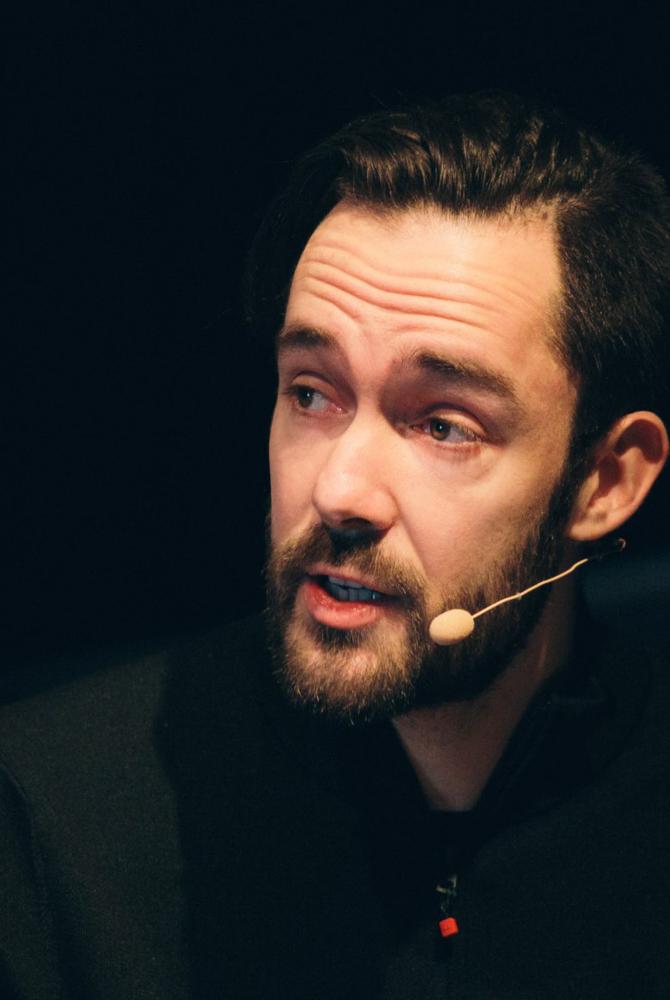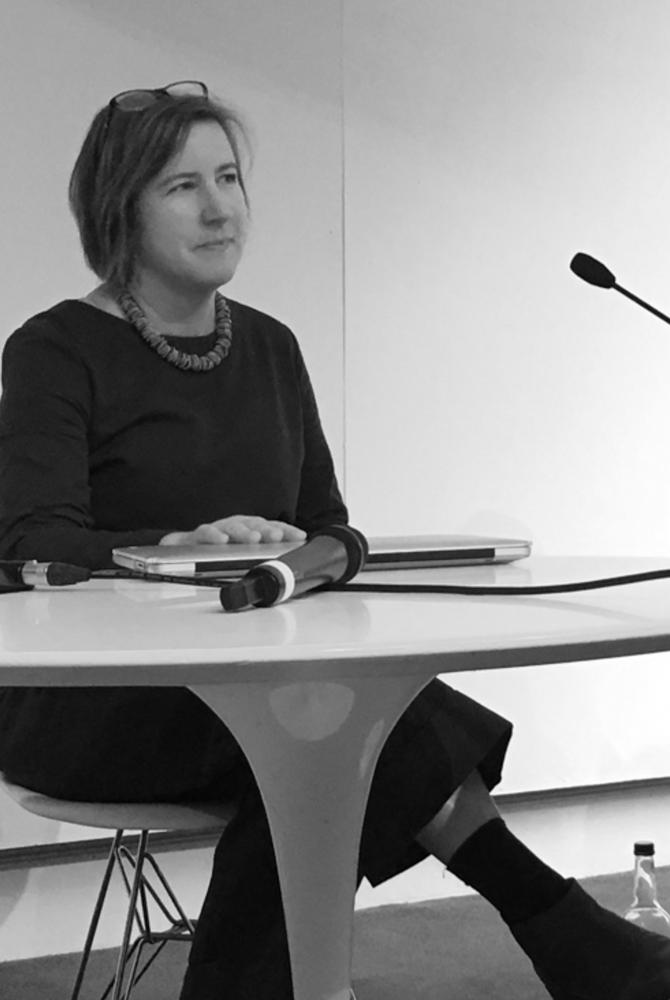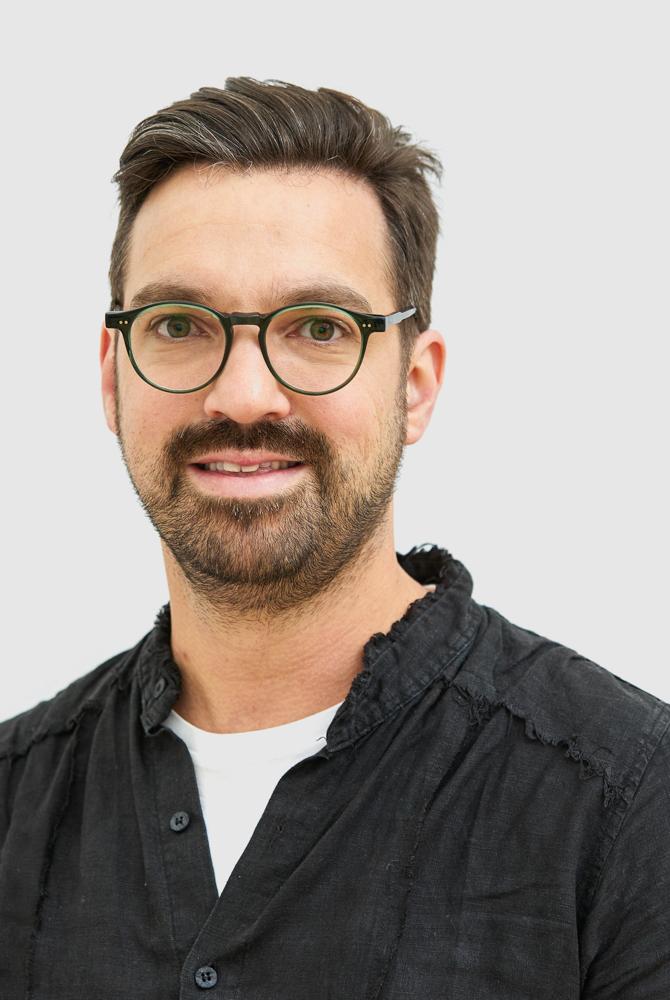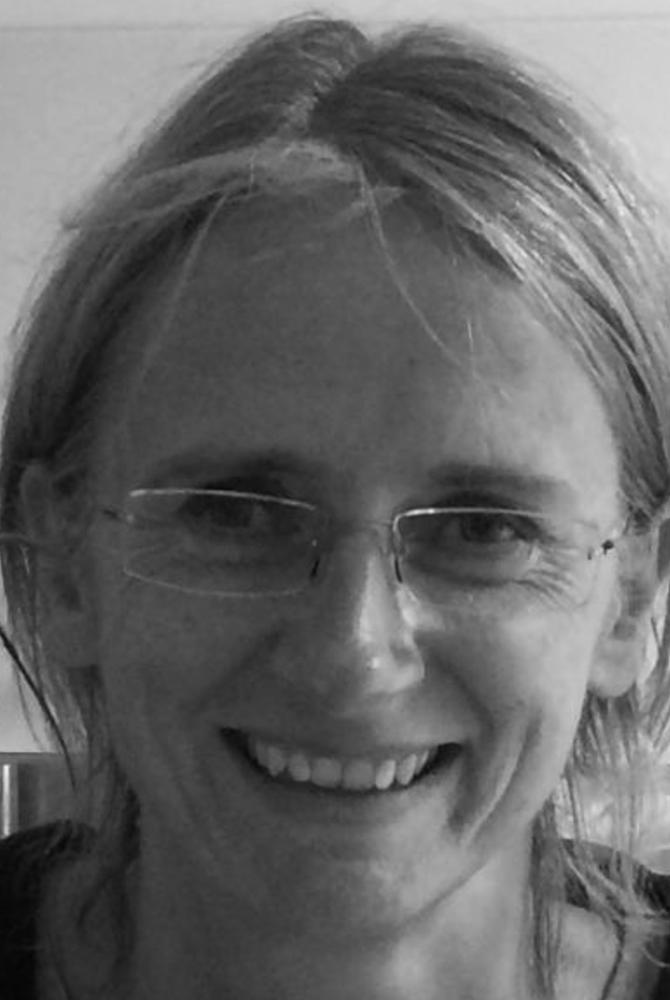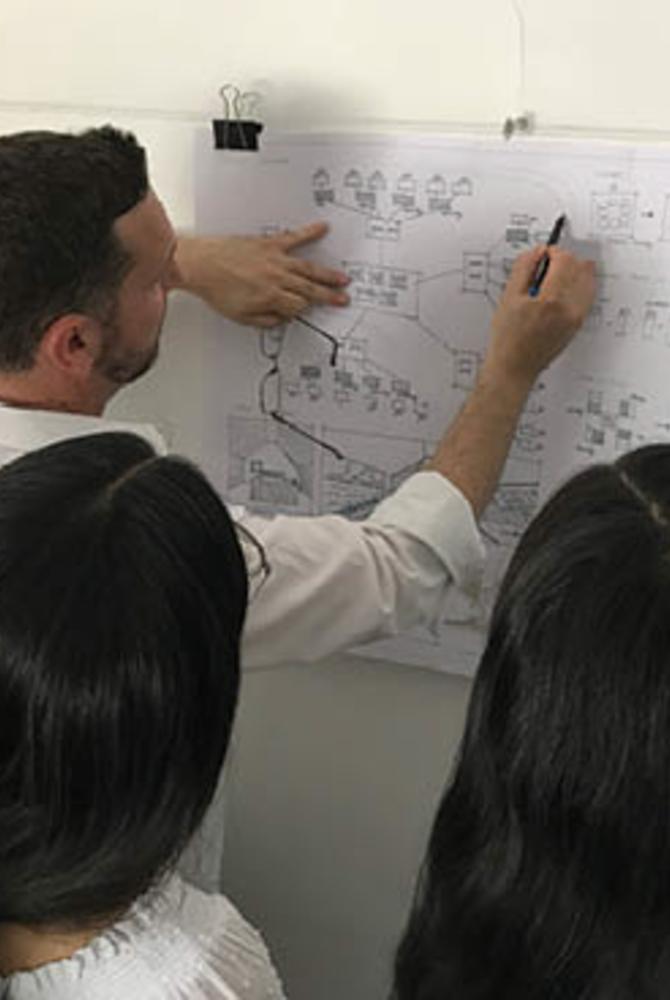Outline
This programme is for highly motivated students who wish to:
- Further their skills in the research-led spatial, programmatic, material, structural and environmental articulation of architectural design.
- Engage with the contemporary city and the associated flows of information, energy and resources.
- Critically position their practice in relation to contemporary theoretical discourses, modes of inquiry and representation.
- Develop situated and careful forms of architectural knowledge and production that are speculative, creative, low-carbon, regenerative, and inclusive.
The two-year Master of Architecture (MArch) programme offers a unique studio-based and research-led learning experience. You will have the opportunity to develop designs that engage with complex urban settings, innovative material systems, and critical forms of inquiry and representation, elaborating nuanced responses to the pressing environmental, socioeconomic, and political questions facing architectural practice in the 21st century.
Based in one of the most beautiful and architecturally significant cities in the world, the ARB and RIBA Part 2 validated MArch programme at ESALA combines creative inquiry and academic rigour with a deep sense of professional responsibility. We empower our students to imagine and prototype forms of spatial practice that are low-carbon, situated, inclusive and regenerative.
The MArch is delivered through a diverse set of elective design studios, each focusing on a specific urban setting or geographical area, and on a set of thematic concerns.
Complementary courses in theory, technology, and professional practice are offered to engage with different facets of contemporary architectural discourse, and to develop core professional competencies. Uniquely, the programme offers two curricular pathways, allowing students to complete either a one or two-year design-studio thesis, prioritising either breadth or depth of enquiry.
Programme structure
The design studio is the heart of the MArch curriculum, and accounts for 160 credits of the programme. You will have the opportunity to explore different design approaches and develop your own specialism by choosing from a range of design studio options.
Each studio is led by a dedicated academic staff member whose expertise and research agenda frame the themes of investigation, and typically involves:
- a field trip to sites of national or international interest, or
- an in-depth and hands-on multi-day workshop with invited experts.
Many studios engage in elements of collaborative work, fostering creative and social exchanges among peers.
The MArch design studios operate through one of two curricular pathways, which you will choose when you arrive in Edinburgh.
Modular Pathway
Students on the Modular Pathway will develop two independent year-long design studio projects, completing a highly resolved thesis while also developing a portfolio typified by breadth of enquiry.
Modular studios are open to both 1st and 2nd year students, and offer opportunities for peer learning between cohorts.
Integrated Pathway
Students on the Integrated Pathway will develop one design thesis project over the two years of the MArch programme, engaging with a wide range of architectural scales from the urban strategy to the construction detail, in a comprehensive project.
You can view examples of work completed in previous MArch studios through the collection of degree show catalogues available here:
The remaining 80 credits comprise four compulsory non-studio courses.
Architectural Technology Research
Architectural Technology Research (ATR) supports you in innovative and creative research projects linking material and environmental approaches to the climate emergency.
It encourages practical and exploratory studies in technical themes relevant to your selected studio and design project, working towards their seamless integration.
ATR is a 20-credit course that runs throughout Semester 1. It includes a series of lectures on contemporary architectural technology and environmental issues.
Studies in Contemporary Architectural Theory
Structured through a series of thematic theory seminars, of which students follow one of particular interest or concern to them, Studies in Contemporary Architectural Theory (SCAT) develops an in-depth knowledge of contemporary architectural discourses, drawing on historical and interdisciplinary texts as necessary.
You will work in thematically organised groups, led by staff with specific expertise in the material. This allows for more active student participation, fosters the nuanced interpretation and debate of issues, and promotes a multi-perspectival approach.
SCAT is a 20-credit course, and it runs throughout Semester 2.
Architectural Management, Practice and Law
In the second year of the MArch programme, the 20-credit course Architectural Management, Practice and Law (AMPL) explores the urgencies affecting architectural practice and introduces students to the political, ethical and social context within which architects work.
Through a series of lectures, workshops and drawing-based studies, it invites you to research and critically reflect upon three priorities for contemporary practice identified by the RIBA:
- Health and Life Safety
- Ethics and Social Purpose
- Climate
Design Report and Academic Portfolio
The Programme concludes with two plenary 10-credit courses which document and represent different aspects of your work.
The Design Report (DR) is a comprehensive document that describes in detail one of the projects completed during the programme and offers an opportunity for you to reflect on the research and design development you have done, position your work beyond the institution, and take responsibility for your design decisions in relation to the associated social and environmental effects.
A companion piece, Academic Portfolio (AP2), is a curated representation and comprehensive record of the body of work developed during the programme. It demonstrates its relation to professional requirements and critically reflects upon, and celebrates, the breadth of enquiry undertaken.






















